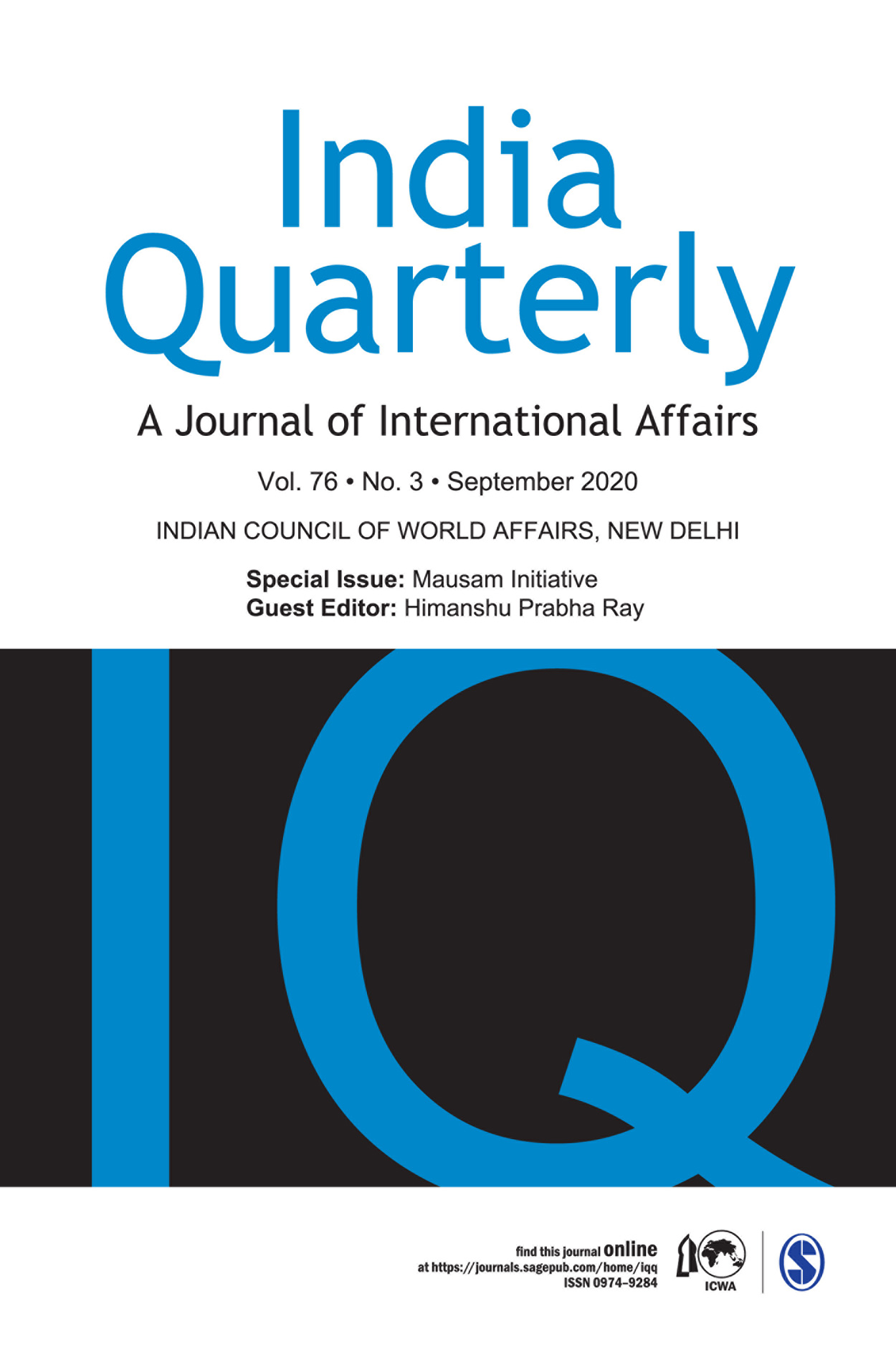Journals

India Quarterly – Special Issue: Mausam Initiative (Vol. 76, Issue 3)
| Author | : | RAY Himanshu Prabha & BHALLA Madhu (Guest Eds) |
| Publication Date | : | Sep / 2020 |
| Publisher | : | Sage Journals |
What started out as a discussion on the direction of Project ‘Mausam,’ launched in 2014 by the Government of India at the Doha Meeting of the UNESCO World Heritage Committee for transcribing world heritage, has turned into a discussion of where the strengths of the Mausam Initiative lie and how the vision of the Initiative could be implemented. Concerns emerged over how culture could effectively be an arm of soft power without ignoring the integrity of academic research in the many disciplines that relate to culture, heritage and politics, and by taking on critical positions that may upset our conventional notions of the Indian Ocean, the domain at the heart of the initiative. The articles in this issue of the India Quarterly reflect that discussion from many different interdisciplinary vantage points.
Our concept note for the issue stated: ‘India’s Mausam Project stands at the interstices of contemporary debates on globalisation, global cosmopolitanism and the redrawing of geopolitical maps.’ The complexity of the politics involved in an initiative such as the Mausam Initiative needs to be recognised. Much of this revolves around what defines the world of the Indian Ocean, who decides this definition and whether the term itself retains meaning if it becomes all inclusive.
While the politics around such redefinitions of the world is easily dealt with rhetorically, it is much more difficult to recreate the communities of the past and to examine the elements of dominance and sovereign rights to the Ocean and its seas on which such redefinitions are posited. The articles in this issue have set out to do just this with the intention of starting a larger debate on the contemporary meanings of the Indian Ocean for India and for the Indian Ocean community.
Our articles look at what the Mausam Initiative means and why it needs to build on the cosmopolitan traditions of the history of the Indian Ocean if it is to create zones of trust and confidence in the Indian Ocean littoral and to understand the significance of the Indian Ocean for Indian policy. While it is necessary to reorient ourselves to the Indian Ocean for the sense of its geopolitical importance and the nature of community, it also becomes necessary to evolve policies and stakes in the more critical task of preserving this heritage. This can be done both at global levels by projecting it at the UNESCO’s World Heritage Convention and through regional institutions like Indian Ocean Rim Association (IORA), which is mandated to do this, as one article suggests. An additional responsibility, if we mean maritime missions and soft power initiatives like the Mausam Initiative to have credibility, is to invest in research into the past so that we get our history right and not sacrifice historical facts to valorise past exploits. If the contemporary focus on connectivity has impacted Asian geopolitics and shifted the discourse around balance of power to balance of influence, the Mausam Initiative can be central to the future of Indian policy. Attention to functional mechanisms in the Maritime Theory Approach also encourages connections through the Indian Ocean Naval Symposium (IONS) and the Mausam Initiative.

